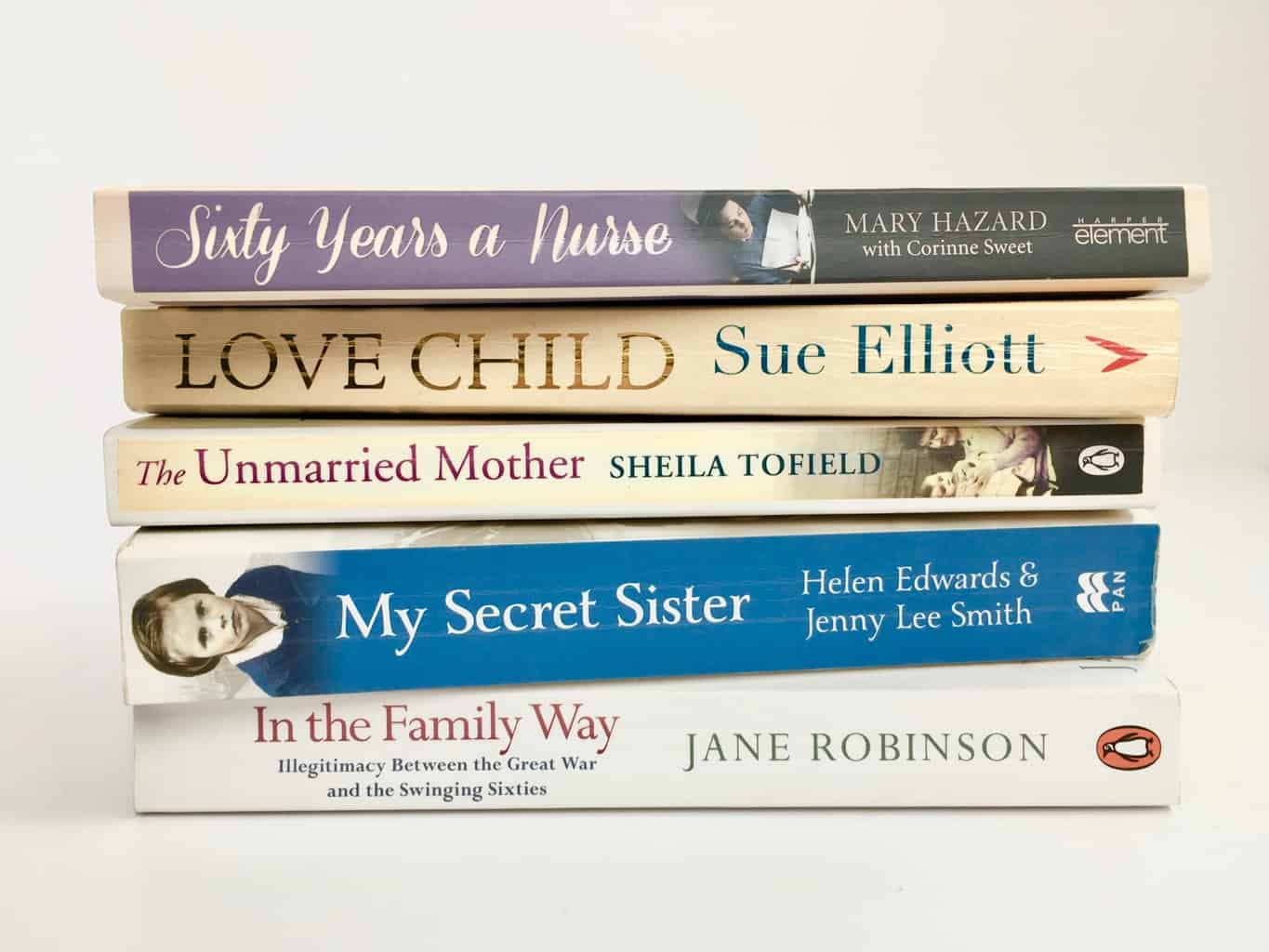I’ve always loved the vintage patina of the 1950s. Researching Liz’s story for My Mother’s Shadow, however, laid open a whole different side of that seemingly cosy, pretty world: what happened if you didn’t fit into the respectable mould of a respectable family. I read and researched as much as I could, books, genealogy forums, websites, TV shows and movies, about single mums in particular and the 1950s and women’s history in general. Here are my favourite picks:
In the Family Way by Jane Robinson: An overview of illegitimacy and unmarried mothers in the 1950s that sets individual stories against the devastatingly harsh moral canvas of the times. There is tragedy and grief but also hope and courage in here and I absolutely loved this book. Love Child by Sue Elliott: A memoir chronicling Elliott’s search for her birth mother in the 1990s, forty years after she was given up for adoption. A very moving, emotional journey that takes you into the mind of a lost child. The Unmarried Mother by Sheila Toffield: Toffield’s moving memories take the reader from growing up in a dysfunctional family, through her experiences of getting pregnant and staying in a Mother and Baby Home to finally making the decision to keep and raise her baby amidst enormous difficulties. My Secret Sister by Helen Edwards & Jenny Lee Smith: Twin sisters separated at birth and reconnecting years later to try and understand their shared past and what led to their separation. A amazing story of tragedy and hope. Sixty Years a Nurse by Mary Hazard with Corinne Sweet. An enjoyable look at 1950s society at large with interesting insights into the treatment of women, the woeful lack of sexual education and maternity wards.
Philomena starring Judy Dench. Based on the book The Lost Child of Philomena Lee by by Martin Sixsmith, the tragic story of a mother looking for a son she was forced to give up for adoption in the 1950s. Call the Midwife. A rather bingeworthy and beautifully filmed TV-Series based on the books by former midwife Jennifer Worth. Set in London’s East End in the 1950s and early 1960s, it manages to deliver both the lovely patina as well as a realistic look at women’s issues of the times. The Hour. Set during the early years at the BBC, this TV show centres on a clever, funny and ambitious female reporter surviving the predominantly male environment of newscasting in 1950s London. It is compelling, pacey and brilliantly showcases the early struggles of women working in a society where a woman’s place was either at home or, at a stretch, behind a typewriter.
Join me in the 1900s. A lovingly put together and very personal website to look up all the small details about life in the 50s (and other decades), from the way you’d use a telephone to how families watched TV and what a suitcase would have looked like. On this Day. I’m a little bit obsessed with this BBC website where you can look up what happened on any given day in recent history. British Pathé. Short newsreels that used to be delivered to cinema-goers along with the film. A treasure trove of information and entertainment documenting both big and small events of the 20th century.

